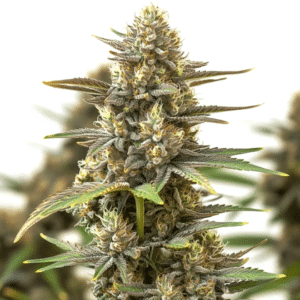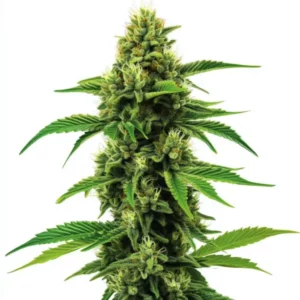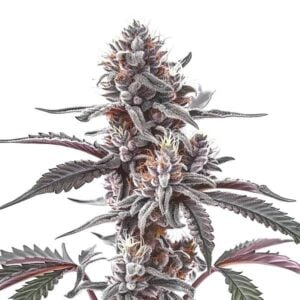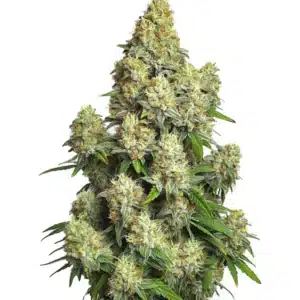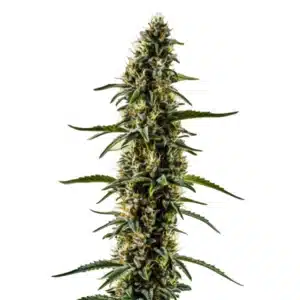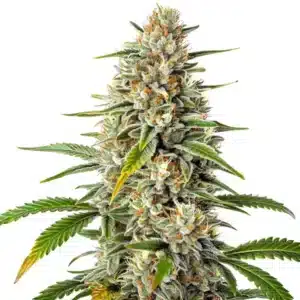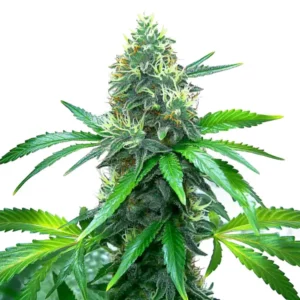
Cannabis Stress Hormones
Cannabis stress hormones have intrigued both scientists and enthusiasts. The way cannabis affects stress hormones can vary significantly. For those cultivating cannabis, knowing these interactions is key to optimizing growth and usage.
Stress hormones like cortisol play a crucial role in how our bodies manage stress. Cannabis effects on cortisol levels have been studied to understand how it influences our stress response. For instance, higher CBD strains may help in regulating these hormones.
Recommended Strains
Berry Z OG
|
|
THC | 15% - 19% (Medium) |
|
|
Type | Feminized |
|
|
Yield | High |
|
|
Phenotype | 60% Indica / 40% Sativa |
Banana Z OG
|
|
THC | 30% - 32% (High) |
|
|
Type | Feminized |
|
|
Yield | Medium |
|
|
Phenotype | 60% Indica / 40% Sativa |
Real-life examples show that some people use cannabis to manage stress effectively, while others may experience heightened anxiety. The difference often lies in the strain and the individual’s unique hormonal response. Selecting the right strain can make a significant difference.
The Science of Cannabis and Stress Hormones
THC and CBD, the primary compounds in cannabis, have distinct impacts on stress hormones. THC influence on stress hormone production can lead to an increase in cortisol levels in some users. This may result in a temporary boost in energy, followed by a feeling of relaxation.
On the other hand, CBD role in stress hormone regulation is often highlighted for its calming effects. It may help in lowering cortisol levels, promoting a sense of calm without the psychoactive effects of THC. This makes CBD-rich strains an appealing choice for stress management.
The marijuana impact on human stress response is complex and personalized. While some find that cannabis helps alleviate stress, others may find it exacerbates anxiety symptoms. This variability underscores the importance of personal experimentation to determine the most effective cannabis stress hormone management strategies for individual needs.
Furthermore, research into cannabis-induced hormonal changes is ongoing, with scientists striving to understand the intricate balance of cannabinoids and their effects on the human body. The insights gained from these studies could lead to more targeted approaches in using cannabis for stress relief, tailoring strains and consumption methods to maximize benefits while minimizing potential downsides.
Choosing the Right Strain
Those new to cannabis or sensitive to THC may benefit more from strains with higher CBD content. Strains like “CBD Kush” from Blimburn Seeds offer a balanced experience, focusing on relaxation without the high THC effects.
For experienced users, strains with a balanced ratio of THC to CBD might provide the desired effect. “Gorilla x Zkittlez Regular,” known for its stress-relieving properties, can be a great option. It combines the calming effects of CBD with the mood-enhancing properties of THC.
Knowing cannabis effects on cortisol levels is essential when selecting a strain. High CBD strains are often recommended for those looking to manage stress without the psychoactive effects that may accompany high THC strains, which can sometimes increase anxiety levels.
Experimentation with different strains allows users to explore how cannabis-induced hormonal changes manifest in their own bodies. By keeping track of which strains lead to favorable outcomes, individuals can make informed decisions that cater to their unique stress management needs and preferences.
Promos & Deals
Practical Tips for Growers
Cultivating cannabis with stress hormone management in mind is an art. Selecting the right seeds is the first step. Consider strains that are known for their balanced cannabinoid profiles, like “OG Kush,” which is available at Blimburn Seeds.
Environmental factors such as light, water, and soil quality also play a crucial role in the final product’s effect on stress hormones. Make sure to provide optimal growing conditions to enhance the plant’s natural properties.
Knowing the THC influence on stress hormone production can guide growers in selecting strains that align with their goals. By prioritizing strains with favorable cannabinoid ratios, growers can cultivate plants that potentially minimize stress and anxiety in users.
Additionally, growers should consider the CBD role in stress hormone regulation when planning their cultivation strategy. By focusing on strains that promote relaxation and reduce cortisol levels, growers can contribute to a more balanced and effective approach to stress management through cannabis use.
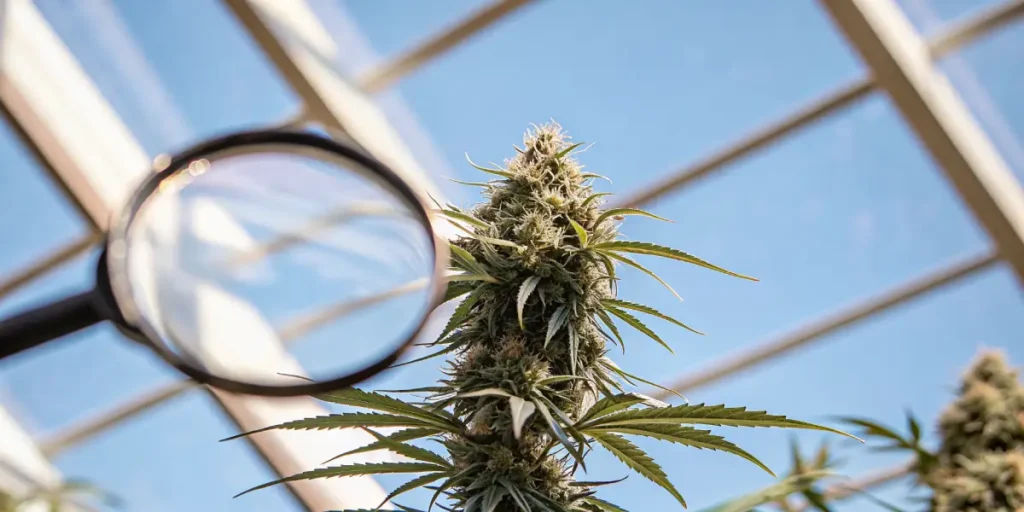
Environmental Influence
Light exposure can influence the cannabinoid production in cannabis plants. Ensure your grow space has adequate lighting to promote healthy growth and potency. Experiment with light cycles to see how they impact the final cannabinoid profile.
Proper watering techniques are essential. Overwatering can stress the plant, potentially affecting its ability to produce beneficial cannabinoids. Monitor soil moisture regularly to maintain a healthy balance.
The environment in which cannabis is grown can have a significant impact on its cannabinoid profile and, consequently, on cannabis stress hormones. By optimizing environmental conditions, growers can influence the plant’s effectiveness in stress hormone regulation.
Beyond light and water, other environmental factors such as temperature and humidity also play a role in cannabis growth. By maintaining ideal conditions, growers can support the plant’s natural processes, enhancing its ability to produce compounds that aid in stress management.
Real-Life Examples and User Experiences
Many users turn to cannabis to help manage stress. Personal stories often highlight the importance of selecting the right strain. One user reported that “CBD Kush” helped them unwind after a hectic day without feeling overwhelmed.
Another user found that “Gorilla Zkittlez” provided a perfect balance of relaxation and euphoria, helping them tackle stress with a positive mindset. Such experiences underscore the importance of knowing cannabis-induced hormonal changes.
Real-life experiences with cannabis stress hormones can vary widely. Some individuals report positive outcomes, noting significant reductions in stress and anxiety levels, while others may experience adverse effects, particularly with strains high in THC.
These varied experiences highlight the need for personalization in cannabis use. By sharing stories and insights, users can support one another in discovering the most effective strains and consumption methods for managing stress and improving overall well-being.
Trial and Error
Finding the right cannabis strain is often a process of trial and error. Every individual’s stress response is unique, and what works for one person might not work for another. It’s essential to be patient and open to experimenting with different strains.
Keep track of your experiences. Note how each strain makes you feel in relation to stress. This information will help you make informed decisions about which strains best suit your needs.
Trial and error in exploring cannabis stress hormones can lead to more tailored and effective stress management strategies. By documenting their experiences, users can identify patterns and preferences, ultimately refining their approach to cannabis use.
Connecting with others who have similar interests in cannabis and stress management can further enhance this process. By exchanging tips and insights, individuals can broaden their knowing of how different strains and consumption methods impact stress hormone regulation.

FAQs
How does cannabis affect stress hormones?
Cannabis stress hormones interaction varies depending on the strain and individual. THC can increase cortisol, leading to heightened alertness initially. However, this may also cause anxiety in some people. CBD, on the other hand, may help reduce cortisol levels, promoting relaxation.
Knowing your body’s response to different strains is crucial. Start with small doses and observe how your stress levels change. Adjust your intake based on your findings to optimize the benefits without unwanted side effects.
Research into cannabis effects on cortisol levels continues to shed light on how different strains and cannabinoids impact stress hormone regulation. This knowledge can empower users to make informed choices that align with their stress management goals.
As the marijuana impact on human stress response becomes better understood, individuals can leverage this information to select strains and consumption methods that promote relaxation and minimize stress. This proactive approach can lead to more satisfying and effective cannabis experiences.
What are the best strains for managing stress hormones?
Strains with higher CBD content, like “CBD Kush” from blimburnseeds.com, are often recommended for stress management. These strains help in regulating stress hormones without the psychoactive effects of high THC levels.
For those who enjoy a balanced experience, “Gorilla x Zkittlez Regular” offers a mix of relaxation and euphoria. Experimenting with different strains will help you find the perfect match for your stress reduction needs.
Exploring the cannabis-induced hormonal changes associated with different strains can guide users in selecting the best options for their stress management goals. By prioritizing strains that align with individual preferences, users can optimize their experiences.
Whether seeking relaxation, euphoria, or a combination of both, knowing the unique properties of various strains can help users achieve desired outcomes. By remaining open to experimentation, individuals can discover the strains that best support their stress hormone regulation efforts.
Is growing cannabis for stress hormone management different?
Growing cannabis with a focus on stress hormones involves selecting the right strains and optimizing growing conditions. Strains like “OG Kush” can be cultivated to enhance their stress-relieving properties.
Pay attention to environmental factors like light, water, and soil quality. These elements play a significant role in the plant’s cannabinoid profile, impacting its effects on stress hormones.
Optimizing cannabis cultivation for stress hormone management requires a nuanced knowing of both strain selection and environmental control. By tailoring these elements, growers can maximize the plant’s potential to support stress relief.
Besides to choosing strains with favorable cannabinoid profiles, growers can also experiment with cultivation techniques that enhance the plant’s natural properties. This holistic approach can lead to more effective and satisfying outcomes for users seeking stress management solutions.
Can cannabis increase stress in some users?
In some cases, cannabis can increase stress levels, particularly with high THC strains. This is due to THC’s potential to raise cortisol levels, which can lead to anxiety in sensitive individuals.
Choosing strains with a balanced THC to CBD ratio may help mitigate these effects. Monitoring your body’s response and adjusting your usage accordingly is key to managing stress effectively.
Recognizing the potential for THC influence on stress hormone production can guide users in making informed choices about their cannabis consumption. By selecting strains with lower THC levels, individuals can minimize the risk of increased stress and anxiety.
For those prone to anxiety, prioritizing strains with higher CBD content can offer a more balanced and calming experience. By knowing their unique responses to cannabis, users can develop strategies that optimize their stress management efforts.
How can I track the effects of cannabis on my stress hormones?
Keeping a journal is an effective way to track how cannabis affects your stress hormones. Record the strains used, dosage, and your stress levels before and after consumption.
Over time, this information will help you identify patterns and make informed decisions about which strains and dosages work best for managing your stress. Sharing your findings with a community can also provide additional insights.
Documenting cannabis-induced hormonal changes can provide valuable insights into the relationship between cannabis use and stress hormone regulation. By maintaining a detailed journal, individuals can refine their approach to cannabis consumption.
Engaging with a community of like-minded individuals can further enhance this process. By sharing experiences and discussing findings, users can gain new perspectives and strategies for optimizing their cannabis use for stress management.


